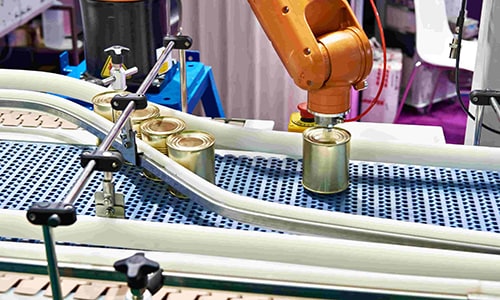
The Relationship Between DCM and Grain-Free Pet Food
Most dog owners consider their canine companions to be part of the family. This means providing them with the most nutritious food is a top priority. But while grain-free dog food has been a popular choice for pet owners, there has also been some concern about a possible link between these diets and dilated cardiomyopathy (DCM), a heart condition in dogs.
Concerns about a possible link between grain-free dog food and DCM surfaced in 2018 when the U.S. Food and Drug Administration (FDA) announced they were investigating a potential correlation between them. However, once light is shed on these claims using scientific studies and analysis, we can see that the correlation doesn’t stand up to scrutiny and does not suggest causation.
What is Dilated Cardiomyopathy in Dogs?
DCM in dogs is a serious condition that affects the heart muscle, causing it to enlarge and weaken. This affects the heart’s ability to pump blood effectively, eventually leading to heart failure.
The exact cause of DCM is still not entirely understood, and it’s likely to have a series of contributing factors. However, certain breeds, especially large ones such as Dobermans and Great Danes, seem more prone to the condition. Yet overall, DCM is unpredictable, and it’s tough to determine exactly why or when it will strike a particular dog.
Why do people assume there’s a connection between grain-free dog food and DCM?
When the U.S. Food and Drug Administration (FDA) sounded the alarm 2018 about a potential connection between grain-free dog food and increased DCM in dogs, it ignited widespread concern. However, a retrospective study published in 2022 found that despite the dramatic increase in grain-free dog foods from 2010 to 2019, there was no significant corresponding increase in canine DCM.
Another 2022 study found no direct causative link between a grain-free diet and DCM in dogs. However, the researchers emphasized that, while DCM is a multifactorial disease with genetic predisposition being a significant risk factor, the role of diet cannot be dismissed entirely. The reason diet cannot be dismissed as a contributing factor of DCM is not the absence of grains in a diet but instead the potential lack of certain nutrients, like taurine.
Taurine is an essential amino acid for dogs and plays a role in keeping heart muscles healthy. Researchers have been exploring whether alternative ingredients in grain-free food, such as peas, lentils, and potatoes, could affect this key nutrient. Yet, despite extensive studies, no clear connection has been established to suggest that including or excluding these ingredients in a dog’s diet could alter taurine levels or consequently impact canine heart health. Further research is needed to unravel whether such factors could contribute to the puzzle of DCM.
It’s clear that if food plays a role in canine DCM, the focus should be on the nutrient profile of dog food rather than simply the presence or absence of grains. This calls for responsible pet food production and processing techniques that ensure the preservation of essential nutrients.
Conveying Systems and Pet Food Production
Effective conveying systems play an important role in pet food production. The conveyor system transports ingredients from one stage of processing to another, ensuring that the nutritional value of the ingredients remains intact throughout the process.
At S. Howes, we prioritize the production of quality pet food. With advanced conveying systems in pet food production, we are taking steps to ensure the integrity and nutritional value of every bite your pet takes.
We understand that pet owners place high trust in us, so we’re committed to delivering products that live up to that trust. If you have further queries or concerns regarding our processing systems, please visit our Contact page.